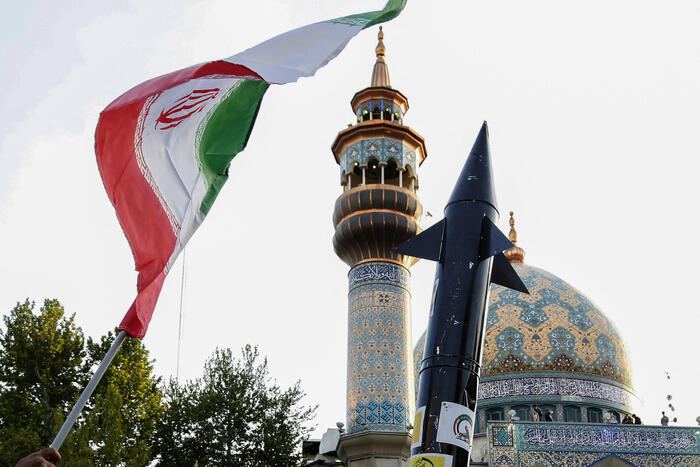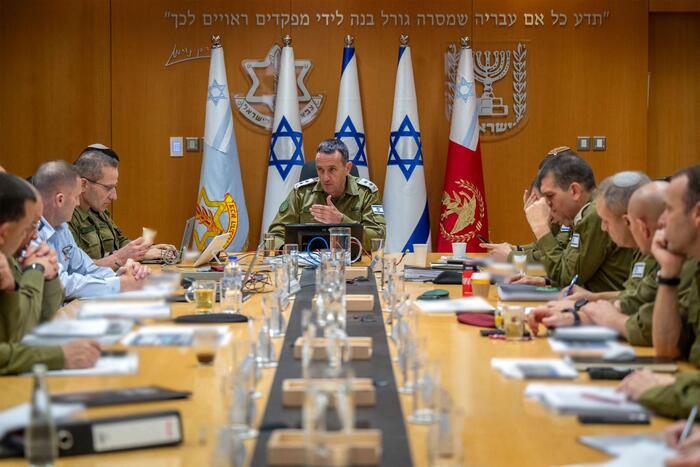The Speaker of the Iranian Parliament, Mohammad Bagher Ghalibaf, surrounded by deputies after his election to lead the House Vahid Salemi / AP
The Speaker of the Iranian Parliament, Mohammad Bagher Ghalibaf, said on Sunday that UN nuclear inspectors can no longer access the images with which they have been monitoring Iranian atomic facilities since February. His words show that the monitoring commitment reached between Tehran and the International Atomic Energy Agency (IAEA), which lasted until last Friday, has not been expanded. If confirmed by the IAEA, this is a further obstacle in efforts to reactivate the 2015 nuclear deal.
"As of May 22, at the end of the three agreed months, [the IAEA] has ceased to have access to the data collected by cameras within the agreed nuclear facilities and will not be able to transfer them," Ghalibaf told Parliament, according to the Iranian network PressTV. Ghalibaf has also said that the country's highest authority, Ayatollah Ali Khamenei, supports the measure.
His words have caused surprise because everything seemed to indicate that this arrangement was going to be extended, given the good progress of the Vienna talks. In the Austrian capital, European diplomacy mediates for the United States to return to the nuclear agreement, which it abandoned in 2018 during the presidency of Donald Trump, in addition to Iran once again respecting the limitations it accepted three years earlier in exchange for the lifting of the sanctions with which his secret atomic program had been punished.
On this, the US Secretary of State, Antony Blinken, said this Sunday in statements to ABC News collected by Reuters that they still have no "answer" from Tehran. "I think Iran knows what it needs to do to get back into compliance [with the nuclear pact]," Blinken said, "and what we haven't seen yet is whether Iran is ready and willing to make the decision to do what it has to do. make".
In fact, Iranian President Hasan Rohaní declared this Sunday that Tehran will continue to participate in these meetings "until a final agreement is reached."
Rohaní has made no reference to the expiration of the deal with the IAEA.
Western observers agree that if it is not extended, it will affect diplomatic efforts to recover the nuclear pact.
IAEA director general Rafael Mariano Grossi had called a press conference in the early afternoon, but it has been delayed until Monday.
"The IAEA Director General continues to consult with Tehran on the technical understanding between the IAEA and Iran," the agency announced in a statement.
The inspection mess began late last year when, in order to pressure the Joe Biden Administration, the Iranian Parliament passed a law forcing the government to stop honoring enhanced inspection commitments if the United States did not lift its sanctions for February. (By signing the nuclear pact with the great powers, Tehran agreed to abide by the IAEA Additional Protocol that allows short-term inspections of undeclared sites.)
The measure by Parliament, dominated by the more conservative wing of the regime, was a new step in the calculated challenge with which the Islamic Republic has been responding to the US withdrawal from the agreement and its economic consequences. But the gravity of leaving the inspectors without access meant closing the doors to the return to the US pact at the hands of Biden. After several weeks of tension, the IAEA director general reached a technical understanding with Iran so that the agency could maintain a minimum of surveillance of Iranian nuclear activities.
“Our cameras continue to record, the flow monitors continue to record, the online systems continue to receive the information, but it is stored in Iran.
They cannot touch it;
is in our custody.
At the end of the three months of this arrangement, if all goes well, we will have access to that information and we will be able to reconstruct everything that happened in each of the flows during those 90 days, ”Grossi explained then in an interview with this newspaper.
It is not clear when Iran plans to erase the images recorded during these three months.
Just before Ghalibaf's intervention, MP Ali Reza Salimi had asked Parliament to order its removal from Iran's Atomic Energy Organization "without delay."

/cloudfront-eu-central-1.images.arcpublishing.com/prisa/RY57ML36M7LNO3ZWVSBNFGNZNI.jpg)












